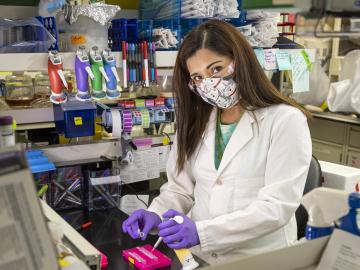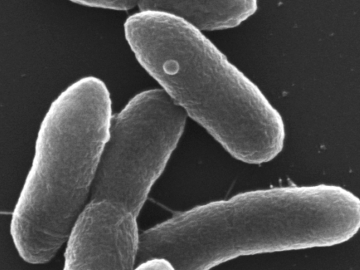Filter News
Area of Research
News Type
News Topics
- (-) Biotechnology (2)
- (-) Exascale Computing (3)
- 3-D Printing/Advanced Manufacturing (28)
- Advanced Reactors (14)
- Artificial Intelligence (8)
- Big Data (11)
- Bioenergy (12)
- Biology (5)
- Biomedical (21)
- Buildings (1)
- Chemical Sciences (5)
- Clean Water (2)
- Climate Change (10)
- Composites (1)
- Computer Science (39)
- Coronavirus (23)
- Critical Materials (2)
- Cybersecurity (4)
- Decarbonization (1)
- Energy Storage (21)
- Environment (29)
- Frontier (1)
- Fusion (13)
- Grid (7)
- High-Performance Computing (3)
- Isotopes (8)
- Machine Learning (8)
- Materials (2)
- Materials Science (37)
- Mathematics (2)
- Mercury (1)
- Microscopy (8)
- Molten Salt (2)
- Nanotechnology (17)
- National Security (2)
- Neutron Science (30)
- Nuclear Energy (31)
- Physics (13)
- Polymers (7)
- Quantum Science (14)
- Security (3)
- Space Exploration (2)
- Summit (17)
- Sustainable Energy (24)
- Transformational Challenge Reactor (5)
- Transportation (15)
Media Contacts

From soda bottles to car bumpers to piping, electronics, and packaging, plastics have become a ubiquitous part of our lives.

ORNL scientists have modified a single microbe to simultaneously digest five of the most abundant components of lignocellulosic biomass, a big step forward in the development of a cost-effective biochemical conversion process to turn plants into
A team of scientists led by Oak Ridge National Laboratory found that while all regions of the country can expect an earlier start to the growing season as temperatures rise, the trend is likely to become more variable year-over-year in hotter regions.

Scientists at have experimentally demonstrated a novel cryogenic, or low temperature, memory cell circuit design based on coupled arrays of Josephson junctions, a technology that may be faster and more energy efficient than existing memory devices.

Researchers across the scientific spectrum crave data, as it is essential to understanding the natural world and, by extension, accelerating scientific progress.




